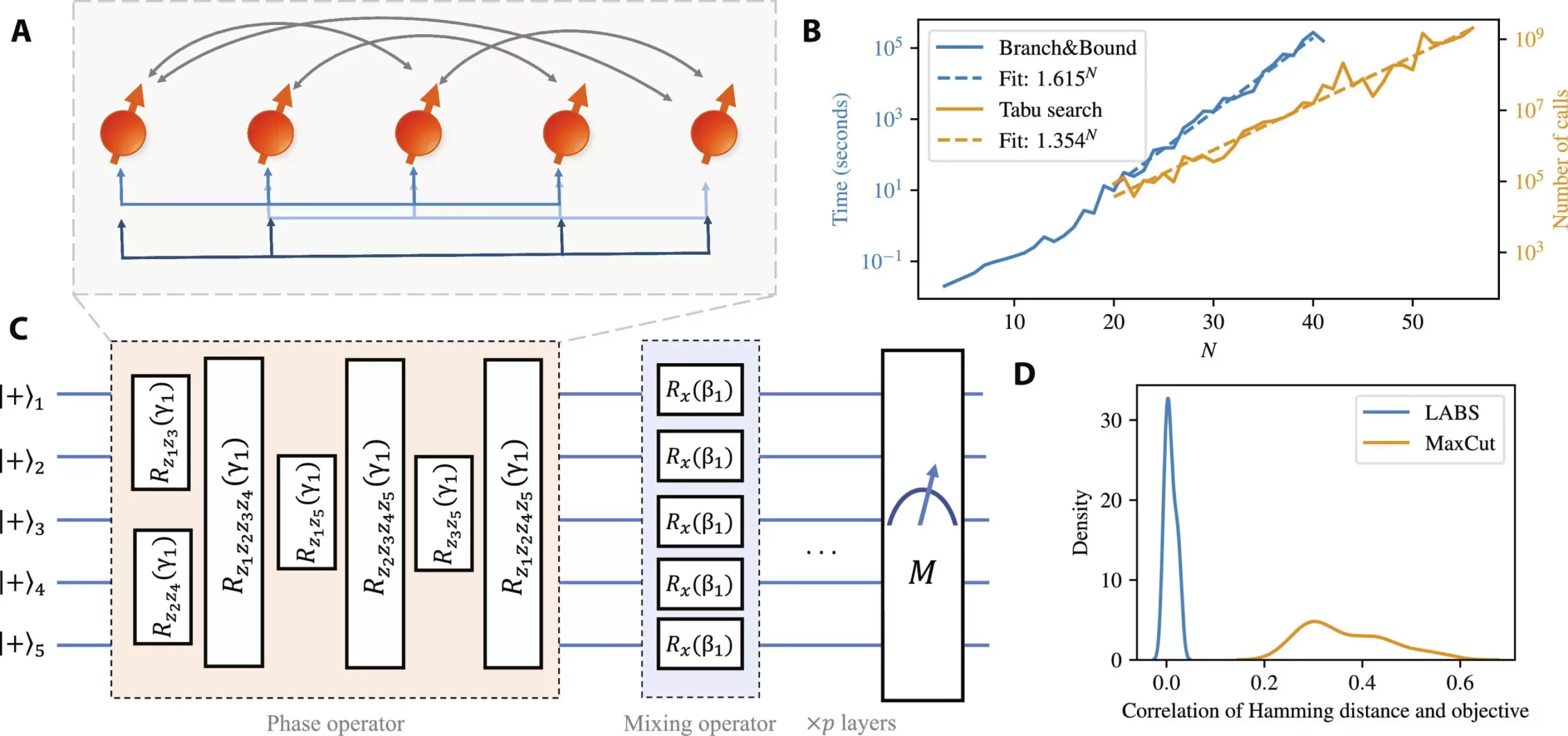In a collaborative effort between JPMorgan Chase, the U.S. Department of Energy’s Argonne National Laboratory, and Quantinuum, a groundbreaking study on quantum algorithmic speedup for the quantum approximate optimization algorithm (QAOA) has been published in Science Advances. This study provides clear evidence of the potential of quantum algorithms to outperform classical methods in solving complex problems.
The research team, led by Marco Pistoia from JPMorgan Chase, focused on evaluating the efficiency and speed of QAOA when applied to the Low Autocorrelation Binary Sequences problem. This problem is significant in various fields such as physical systems, signal processing, and cryptography. By comparing the performance of the quantum algorithm to classical solvers, the team found that the quantum algorithm showed promising results in solving larger problems at a faster rate.
To further investigate the quantum algorithm’s capabilities, JPMorgan Chase and Argonne developed a simulator that evaluated the algorithm’s performance in an ideal noiseless environment. The utilization of the DOE petascale supercomputer Polaris at the ALCF enabled efficient large-scale quantum circuit simulations. This collaboration between industry and research institutions highlights the synergy between high-performance computing and quantum information science.
In a significant step towards practical application, the researchers demonstrated a small-scale implementation of the quantum algorithm on Quantinuum’s System Model H1 and H2 trapped-ion quantum computers. By incorporating algorithm-specific error detection mechanisms, the team successfully mitigated errors and improved the algorithmic performance by up to 65%. This demonstrates the potential for real-world applications of quantum algorithms in various industries.
The success of this research experiment was attributed to the strong partnership between JPMorgan Chase, Argonne National Laboratory, and Quantinuum. According to Ilyas Khan, the founder and chief product officer of Quantinuum, the results would not have been possible without the advanced capabilities of the H-Series Quantum Computer. This collaboration showcases the importance of industry partnerships in pushing the boundaries of quantum computing technology.
The study on quantum algorithmic speedup for QAOA represents a significant advancement in the field of quantum computing. The promising results obtained from this research pave the way for future applications of quantum algorithms in various industries, ranging from finance to materials science. By leveraging the power of quantum computing and high-performance computing, researchers continue to push the boundaries of what is possible in the realm of quantum information science.


Leave a Reply